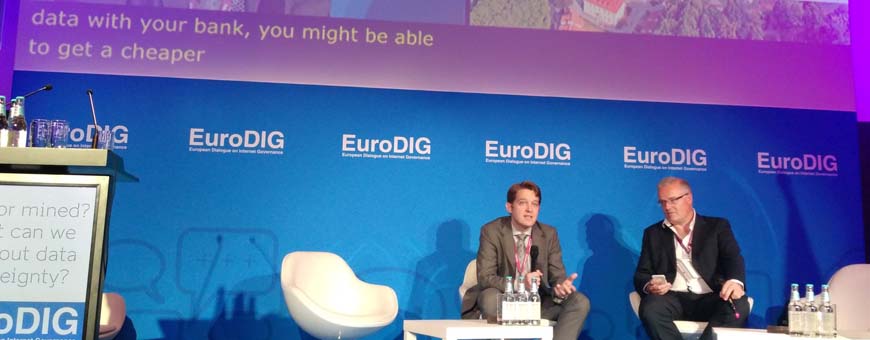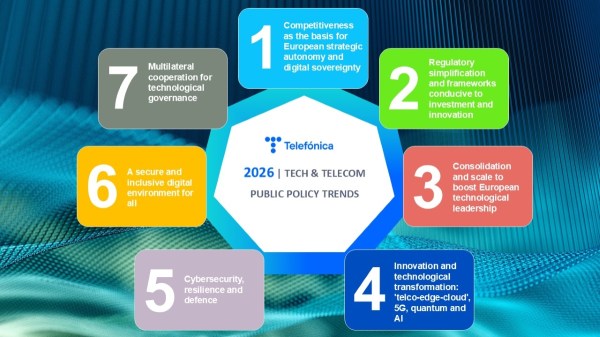 Gonzalo López-Barajas
Gonzalo López-BarajasPublic Policy Manager, Telefónica.
Having Estonia hosting in Tallinn EuroDIG on its 10th birthday has not been a twist of fate. Estonia is an outstanding case study on how digitalization and full Internet adoption can boost competitiveness and wellbeing of a relatively small country almost in the outskirts of the EU.
Estonian and Norwegian Prime Ministers opened EuroDIG 2017, showing commitment at the highest governmental level with digital development from both Baltic countries. Estonia called for upholding a secure Internet, a task the country is achieving without Regulating the Internet. Norway stressed the role of businesses in running the Internet and of the multi stakeholder processes on Internet Governance.
Trade agreements were subject of several discussions, as negotiations include issues having far reaching effects on the Internet: from free flow of data, to the adequacy of privacy frameworks. While negotiating powers fall exclusively under the mandate of governments, such multilateral process could benefit from enhanced transparency. Timely information would enable multistakeholder processes to provide substantial input to governments and potentially lead to better trade agreements for an enhanced Internet development.
The post truth era and fake news had a relevant role in the discussions. While online and social media platforms play a relevant role, solutions pointed to educational and skill development initiatives rather than developing new regulations.
New technologies, such as blockchain and Artificial Intelligence, together with new Internet business models had also room in the debates. Discussions suggested achieving a truly unique single digital market would allow innovation to gain scale in Europe, while over regulation of European businesses is hindering innovation.

Gonzalo López Barajas during one of his speeches at Eurodig.
There was a wide recognition on the growing concern around trust: individuals do not know how their personal data is used and thus do not feel comfortable with it. On this regard, I presented two initiatives aiming to build trust and transparency on the use of data by private companies: the Data Transparency Lab, and Telefónica’s innovative approach to personal data, Aura.
The Data Transparency Lab (DTL) is a joint initiative by Mozilla, Telefónica, AT&T, MIT Connection Science and Inria fostering the implementation of tools to enhance transparency on how personal data is used. The DTL concedes researchers up to 6 or 8 grants per year for the creation and curation of such tools. To better understand what this tools aim, a good example is the Facebook Data Valuation Tool proposal, which shall provide for a user account an economic value of the personal data Facebook holds.
Aura, our cognitive intelligence platform, aims to change our clients’ relationship with their data, enriching our customers’ lives and benefiting society. Aura is designed to give them the maximum transparency and control of their data and to let them use it for their benefit. John Foster, Strategy Director at Telefónica, provided a great insight on Aura during OECD Forum 2017, which took place just on the same dates as EuroDIG.
The range of issues addressed at EuroDIG was wide, from the protection of human rights online, to accountability and regulation of algorithms, cybersecurity, copyright, digital skills, IoT, environmental sustainability… As societies become more digital and Internet fully permeates our daily lives, Internet Governance becomes relevant not just for traditional Internet related companies: finance, health, energy, automotive; all industries are affected by Internet Governance processes. Internet Governance is not just a technical issue any more, why nor rename it Digital Governance so that everybody feels involved?
Next relevant multi stakeholder process on Internet Governance, IGF 2017, will take place in Geneva, Switzerland, from the 18th to the 21st of December. No matter what your affiliation or industry group is, Internet Governance is really shaping our lives, and you should get involved.






